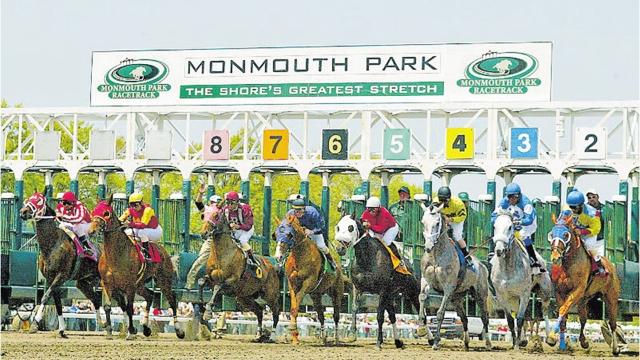NJ sports betting case continues on unpredictable path – NorthJersey.com

Here’s a brief rundown of New Jersey’s efforts to bring Las Vegas-style sports betting to the state.
John Brennan/northjersey.com
The long-running New Jersey sports betting case defied expectations yet again on Monday morning – although a fresh decision appears to be just around the corner.The U.S. Supreme Court, which is concluding its session this week, did not accept or reject the case on Monday morning.
Instead, it was re-listed as part of the Court’s “cleanup conference” later on Monday of undecided cases, with a decision on whether to take the case expected on Tuesday.
“I consider it good news that we didn’t receive notice that our case would not be heard,” said Dennis Drazin, an attorney who runs Monmouth Park for the state’s thoroughbred horsemen – who are intervenors in the case. “At this point, anything is possible.”
Fort Lauderdale, Fla.-based sports law attorney Daniel Wallach said that roughly half of the cases that reached this stage last year were taken up by the Court or were vacated and remanded to the lower court.
“This is a promising sign for New Jersey” sports betting advocates, Wallach said, noting that only about 1 in 100 cases appealed to the Supreme Court are granted each year.
Last week, Wallach had noted that there were a number of reasons why the Court might take the case.
Gov. Chris Christie and other sports betting supporters lost an appeal to the U.S. Third Circuit Court of Appeals in 2013. But it was by an unusual 2-1 – not unanimous – margin. And Judge Julio Fuentes, writing for the majority, suggested that the state could craft a new sports betting law that did not run afoul of Congress’ Professional and Amateur Sports Protection Act of 1992.
That federal law prohibits sports betting in 46 states while allowing Nevada to keep its widespread sports betting, and giving Delaware, Oregon, and Montana an option to offer limited sports betting that those states previously had offered.
In 2015, a second Third Circuit panel again upheld a U.S. District Court judge’s ruling, finding that a revised New Jersey sports betting law still was unconstitutional. The second law left it to state racetracks and Atlantic City casinos, if they chose, to run their own private gambling operations without state oversight.
That panel – again by a 2-1 margin – concluded that the law amounted to a “de facto authorization” of the gambling by the state, thereby violating the federal law. Fuentes, who wrote the original majority opinion, was the lone dissenter after finding that New Jersey had satisfactorily amended its law as he had suggested in the first ruling. The two new judges on the panel – Maryanne Trump Barry (the sister of President Trump) and Marjorie Rendell (the wife of former Pennsylvania Gov. Ed Rendell) – disagreed.
Few cases are ever heard by an “en banc,” or full panel of Circuit Court judges – but this one was in 2016. The judges once again sided with the NFL and four other sports organizations that sued the state in 2012 in a so far successful effort to prevent sports betting from occurring legally in New Jersey. That vote was 9-3.
Earlier this year, the U.S. Supreme Court made this sports betting case the only one of more than 150 on its docket to be sent to the U.S. Solicitor General’s office for review – another example of the case’s uniqueness.
Last month,the Solicitor General’s office informed the Court that it did not appear that there were sufficient Constitutional issues to require the Court to take the case.
The Court usually, in recent years, has taken the Solicitor General’s advice on whether to take a case. Yet when the Court’s acceptances and denials of cases came out this morning, the New Jersey sports betting case remained in play.
Loquacious state Sen. Ray Lesniak, D-Union, the state’s leading advocate for sports betting, for once was at a lack for words after the non-news on Monday.
“I have no idea what it means,” Lesniak said.
Should the state lose its bid, several Court rulings in the case noted that – because of Constitutional limitations of Congress’s power over states – New Jersey legislators are free to erase all of its sports betting limitations, which advocates have described as “the nuclear option.”
There is some sentiment that passing such a law would force the hand of the federal government officials and sports organizations, since neither groups have indicated any acceptance of such a change in New Jersey or other states.



